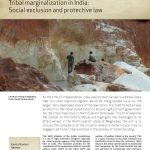Effects of Lawfare: Courts and law as battlegrounds for social change (17- 25 August)
With an option of specialization in Effects of Lawfare concerning Gender & Sexuality
OBS! New application deadline: 1 July!!!
Registration for the PhD course is now open! Application deadline is 1 July. Please visit the course page for further information about the course program and admission. Here is the program and the reading list.
UiB candidate: Please register here
If you are not a UiB candidate: Please register here
The course combines lectures specifically designed for the course and participation in lectures, panels, round-tables, and workshops of the Bergen Exchanges on Law & Social Transformation.
Students will receive 3 ECTS for participating in the course (80% of seminars), submission of paper abstract (150-300 words), and presentation of their own work to the other participants. Students who submit a publishable journal article (4,000-6,000 words, with an additional reading list of 500 pages, which can be from the elective reading list) by 15 October 2017 are awarded an additional 7 ECTS. (Postdoctoral researchers and MA level students will be accepted if space permits).
The PhD course is free of charge and open to applicant from Norwegian and international institutions on a first-come first serve basis. Participants do, however, have to cover their own travel and accommodation costs, as there unfortunately are no scholarships available.
Course leaders: Camila Gianella (Comparative Politics, University of Bergen/CMI); Bruce Wilson (Professor, University of Central Florida/CMI); Siri Gloppen (Professor Comparative Politics, University of Bergen & LawTransform Director)
The past three decades has seen an accelerating juridification and judicialisation of societies and politics. In all parts of the world and at all levels, from the global to the local, increasingly complex webs of legal norms and institutions regulate our societies and lives. Courts and law have become increasingly important as arenas for political struggles. Constitutional reforms and international treaties aim to transform social dynamics from above, among others though new and stronger protection of citizens’ rights, while individuals and groups engage in legal mobilization from below to seek justice for their cause. In either case dense networks of international activists and experts are ready to engage with and aid local actors, creating a dense global network of actors, legal norms, and adjudicative institutions. In this context, it is urgent to better understand law as a political field. Does this turn to rights and law have a transformative potential? Does it provide institutional spaces for the voices of marginalized groups to be heard and tools that can provide political leverage? Or does it, rather demobilize and depoliticize struggles in ways that exacerbate unequal power-relations and marginalization dynamics? These are urgent issues on which there are deep disagreements in the literature. The course offers an introduction to the scholarly debates on the potential and limits of law as an instrument of social change, and opportunities to engage with some of the foremost scholar in the field, and international research projects currently seeking more compelling answers to these questions.



